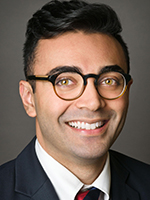 The career options available to physicians today are more diversified than they have ever been. Physicians are making their presence known in areas that are not fully clinical, including policy, management and leadership, the arts, communications, consulting, and more. Dual degrees have also been on the rise, with many more students pursuing the MD/MPH, MD/MPP, MD/MBA, and, less commonly, Master of Arts and JDs.
The career options available to physicians today are more diversified than they have ever been. Physicians are making their presence known in areas that are not fully clinical, including policy, management and leadership, the arts, communications, consulting, and more. Dual degrees have also been on the rise, with many more students pursuing the MD/MPH, MD/MPP, MD/MBA, and, less commonly, Master of Arts and JDs.
However, the criteria for being hired or promoted at the most prestigious medical centers in the US and UK, most of which are also prominent research institutes, primarily focus on academic output, such as papers, abstracts, and academic presentations. This has been noted as a problem for clinicians within these institutions, since they have to juggle providing the best clinical care with the demands of academic publishing. While some institutions have clinician-educator tracks as well, the majority are academic track focused. However, I think that there is an even larger developing dichotomy between what our health systems and communities need, and what our best medical institutions reward.
One way to conceptualize this would be to point out that there is no tenure track within an academic medical center for being a thought leader in medicine, a community organizer in marginalized communities, a global health expert, a medical writer with a talent for narrative medicine, a health policy wonk who is not an academic researcher, and the list goes on. While it is debatable whether tenure or promotion should exist for these accomplishments, the lack of tangible reward with regard to hiring and promotion for these skills at most academic medical centers certainly creates a hierarchy of talent and recognition in which academic research is the elite. This is a problem.
This reward system is confining many young physicians with an array of talents and interests into a more siloed, academic enterprise. One such dilemma can be seen with the example of physicians who enter training with an interest in community work with poorer, vulnerable populations. This type of work will not on its own result in a promotion in an academic center—it would have to be coupled with high quality research. With most prestige and funds being at the Harvards and Cambridges of the world, physicians who could have become phenomenal community leaders may not do so in order to stay and excel within the Harvard or Cambridge systems.
A number of classmates and colleagues at Harvard, for instance, have spoken of moving away from investing time in community endeavors, or in other interests such as writing or the arts, when they could instead be doing academic research, which may result in a publication and which will help advance their careers by improving their chances of matching into competitive fellowships. I think of this phenomenon as an “academic success trap.” When academic medical centers are so narrowly defining “success” for young physicians, we risk losing the drive and passion of a generation.
Should elite institutions not be incentivizing their students and young faculty to be applying their skills in the community, or to be excelling in disciplines outside of academic research? What is the role and responsibility of academic medical centers, and should these be reassessed in today’s healthcare environment? Given widening gaps of health outcomes in poor and rich communities within the US and the UK, it is all the more apparent that academic research, while important, does not have all of the answers. Expertise in the arts, in community organizing, in philosophy and ethics, and other such disciplines is essential and should be rewarded and incentivized for young doctors.
With all of this in mind, we are finding that mental health issues among medical students are on the rise, with a recent paper in JAMA estimating that 27% of medical students worldwide are depressed or have depressive symptoms and 11% have suicidal ideation. A similar trend was described last year for resident physicians. The immense pressure to be “successful” and to continue advancing our careers may come at the expense of many physicians following unusual or unorthodox interests, which often do not come under traditional research.
We see a number of doctors returning to a previous passion much later in their careers, whether it is working in a homeless clinic, writing non-fiction or fiction about patients and healing, contributing to the media, and more. We must do a better job of integrating and valuing these skills at the top medical centers, so that young, brilliant doctors are not molded into a one size fits all academic product—the health of our nations depends on this encouragement of diversity.
Abraar Karan is a physician and MPH candidate at the Harvard TH Chan School of Public Health in the Department of Health Policy and Management, and is applying to residency in internal medicine. He has worked to improve the health of marginalized communities in Africa, Latin America, and Asia. He is the editor of the book Protecting the Health of the Poor: Social Movements in the South. Twitter:@AbraarKaran.
Competing interests: None declared.
